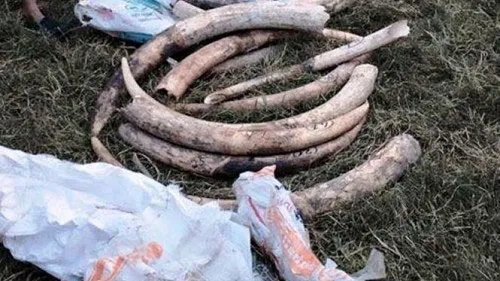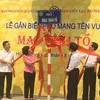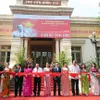Vietnam police hunt for trafficker of African elephant tusks

According to the case file, a traffic accident occurred between a four-seat Camry car driven by Quy and a bus on the Nguyen Hoang bypass in the city on June 7.
Immediately after the accident, Quy and another man in his car tried to bring five sacks along with them and escape from the scene, but they failed.

The African elephant tusks seized by police in Tam Ky City of the central province of Quang Nam on June 6, 2015.
Traffic police who handled the accident searched the sacks and found a total of 16 alleged elephant tusks inside them.
Police sent samples of the items to the Institute of Ecology and Biological Resources (IEBR) for testing and the test results showed that all of them are African elephant ivory tusks, with scientific name Loxodonta Africana, police said.
While police have been handling the case, Quy fled from his residence.
Police have also detected that the number plate of Quy’s car is fake.
Many cases of trafficking wildlife parts have recently been uncovered in Vietnam.
On August 13, customs officers at Tien Sa Port in the central city of Danang seized a total of 593kg of elephant tusks and 142kg of rhino horns hidden inside blocks of fake marble shipped from Mozambique.
The day before that, customs officers at Noi Bai International Airport in Hanoi seized 95.54kg of purported elephant tusk parts and one alleged rhino horn weighing 4.76kg that were shipped from Africa.
The samples of these items were sent to the IEBR for testing, customs officer said.
Currently, the price for rhino horn on the black market can reach US$133 per gram, while that of ivory is around US$2,100 per kg, they added.
On April 16, the airport customs also seized 65.42kg of elephant tusks and rhino horns transported from France.
The trade in tusks and rhino horn is banned under the Convention on International Trade in Endangered Species of Wild Fauna and Flora as well as Vietnamese law, as the two items are listed in the World’s Red Book, customs officers said.





